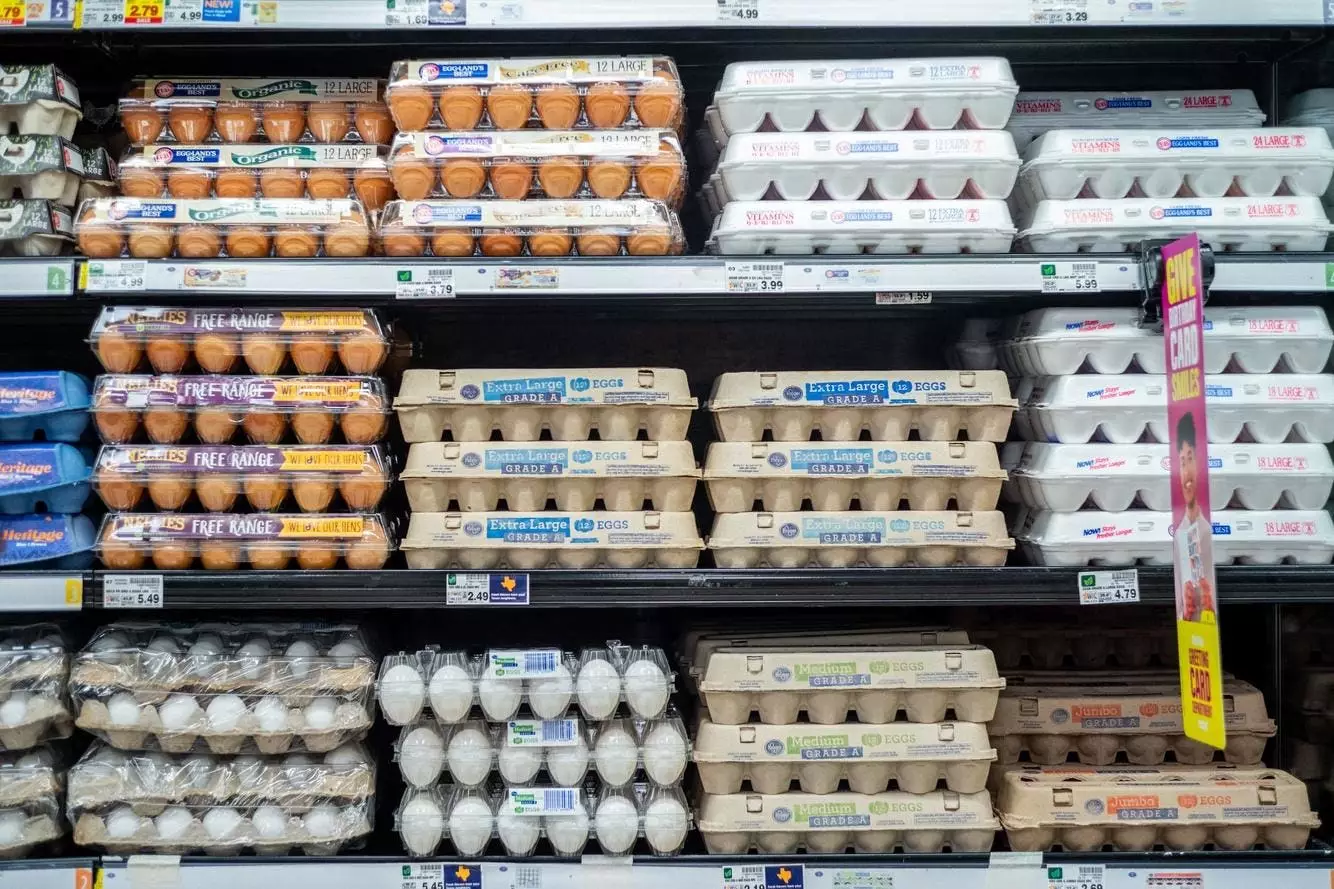Eggs have always held a significant place in culinary traditions worldwide. They serve not only as a versatile ingredient in numerous dishes but also symbolize comfort and nourishment. Economically prized for their affordability and nutritional value, eggs have long been considered a staple for consumers from various backgrounds. However, recent shifts in both market dynamics and consumer habits are beginning to transform the way we view and purchase eggs. With inflation gripping the economy and prices soaring by a staggering 53% in just one year, we’ll delve into the implications of this crisis, the emerging consumer behavior patterns, and how the humble egg could evolve into a premium product.
The recent Consumer Price Index (CPI) indicates a sharp rise in egg prices, significantly affecting grocery budgets across the nation. For many households, the simple act of purchasing eggs has become infused with anxiety, as shoppers must make pivotal decisions regarding value and necessity. This drastic price escalation forces consumers to reevaluate their priorities beyond mere penny-pinching; it demands a more profound contemplation of what food means to them. As a result, grocery shoppers now confront not just the formidable price tag but also the accompanying ramifications on their overall eating habits.
This inflation-induced sticker shock has prompted dramatic shifts in consumer behavior. Some shoppers no longer see eggs as a reliable dietary staple; instead, they are exploring alternatives, from oatmeal to dairy-based options. This evolution reflects a broader trend of consumers trading down to store brands or bulk purchases wherein affordability drives their choices. Others are experimenting with egg substitutes, including tofu and liquid alternatives, leading to significant shifts in meal preparation and breakfast routines.
On the other end of the spectrum, we observe a rising class of consumers who are willing to pay more for premium-quality eggs. Some see this as an opportunity to prioritize quality over quantity, investing in organic or locally sourced eggs that tout ethical production methods. Younger generations, particularly Millennials and Gen Z, exhibit a readiness to embrace this change, reflecting their values of sustainability and quality rather than mere convenience.
Adding complexity to the current situation is not only the rising price but also the alarming reports of egg shortages. Recent data reveals that over half of egg buyers experience out-of-stock situations at local grocers. Shoppers often leave the store without making their intended purchases, forcing them to seek alternative breakfast options or source eggs from less familiar vendors. This lack of availability, combined with inflated prices, serves as a catalyst for consumers to rethink their dietary compositions, leading them to explore new meals that exclude eggs altogether.
As the availability of budget-friendly options dwindles, we see more consumers gravitating towards premium eggs, effectively reshaping market dynamics. Retail giants like Walmart, Costco, and Aldi have found themselves increasingly leading the category in store-brand sales. However, as prices continue to climb, a surge of shoppers may inevitably lean towards buying in bulk or considering plant-based proteins as viable substitutes.
The question remains: What happens when affordable staples like eggs begin to feel more like luxury items? This phenomenon has historical precedence; we have witnessed similar price escalations transforming staples such as meat, dairy, and even bread into specialized purchases. If these current trends continue, we may anticipate a significant shift in culinary culture towards more adaptable and diverse eating habits, where consumers leverage their values to navigate food costs.
As we plunge deeper into 2025, we are left grappling with the shifting landscapes of food consumption. Whether people will embrace the trends of upgrading their purchases or adapt to alternative proteins and recipes remains an open question, one that may define the future of dining in America. The humble egg is at a crossroads, and how we respond to these economic challenges might forever alter its place on our plates.
As we navigate the challenges posed by inflation and evolving consumer preferences, one thing is clear: the once unassuming egg is undergoing a transformation. It is no longer simply an affordable source of protein but is evolving into a subject of choice and values. Every purchase—from bulk buying to premium selection—serves as a reflection of broader societal shifts towards sustainability, ethical sourcing, and culinary innovation. The question we must ponder is, will the egg regain its status as an everyday essential, or will it continue its shift towards becoming a premium product? Only time will tell.


Napsat komentář